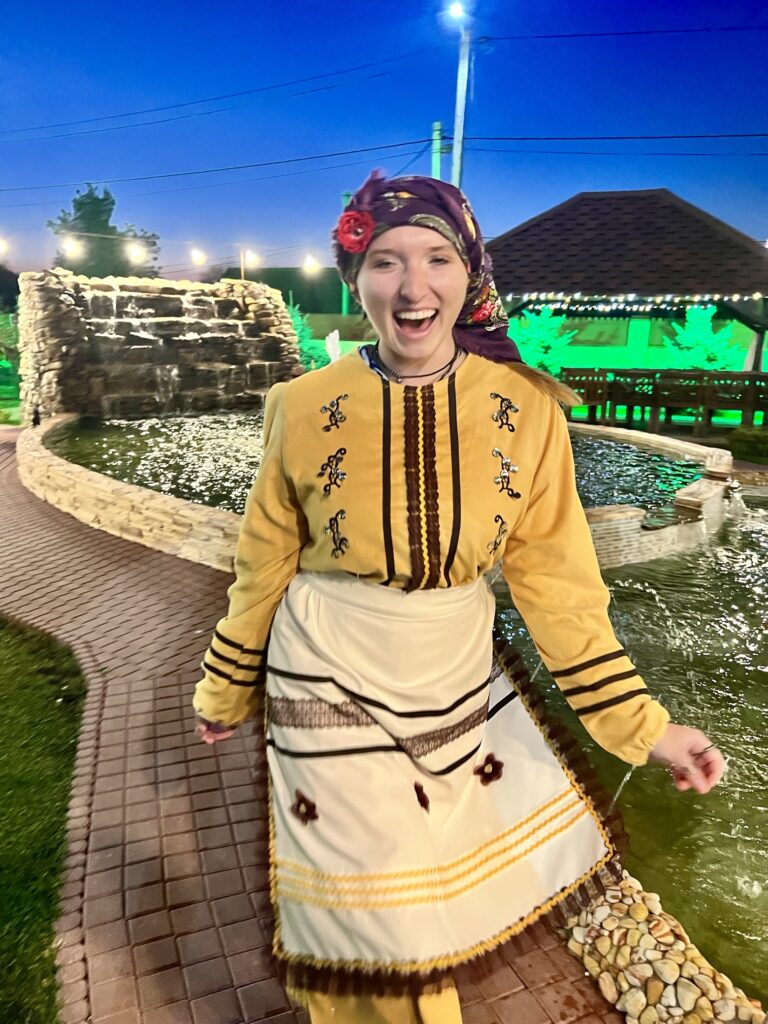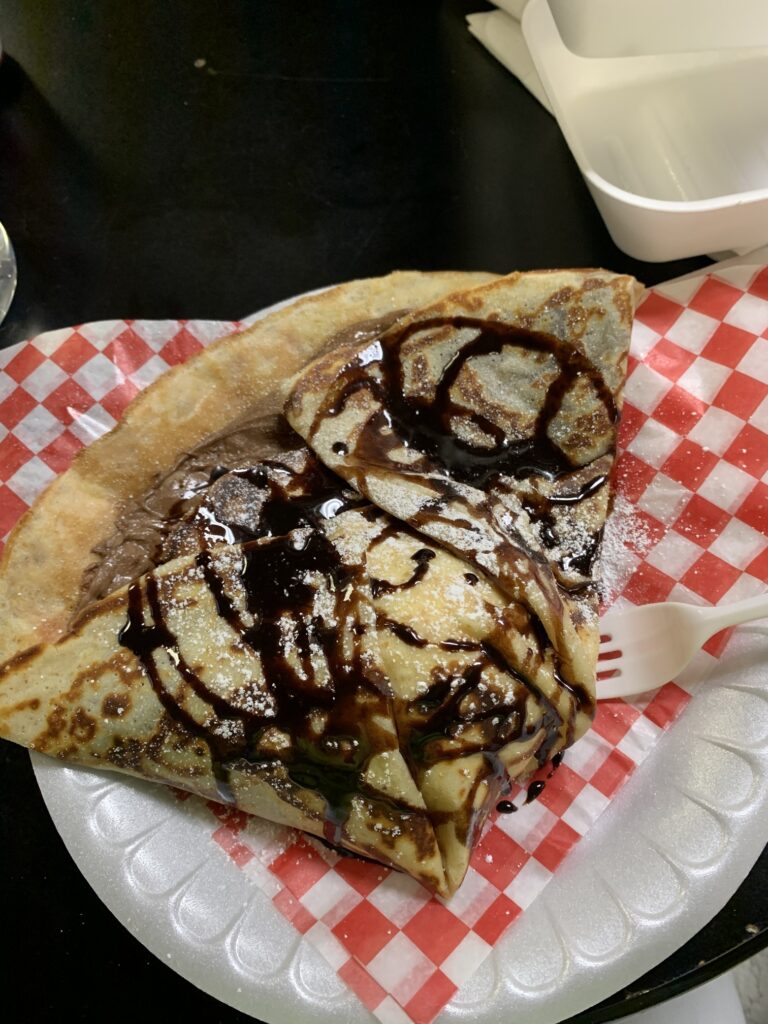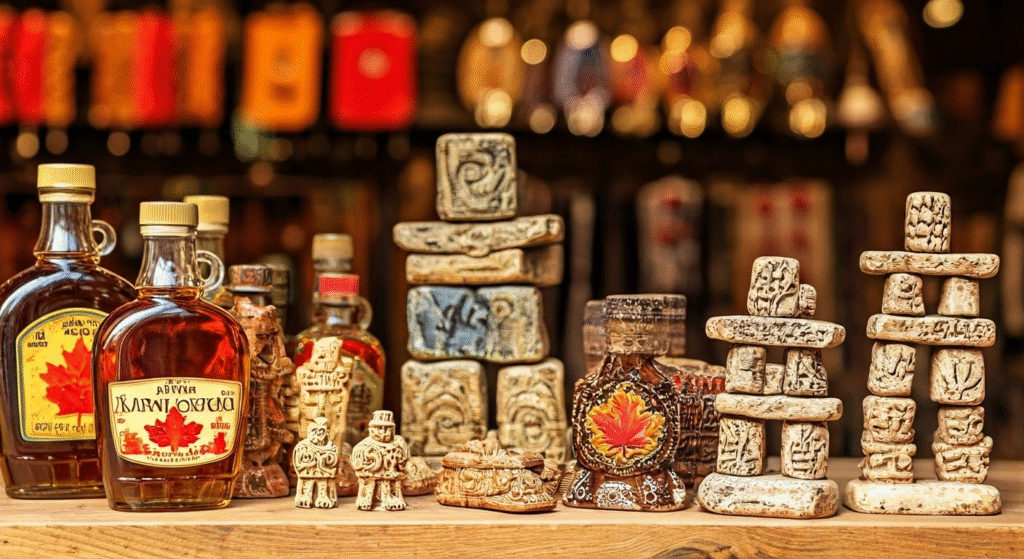
History of Tea in Malang
 January 25
January 25
 16 min read
16 min read
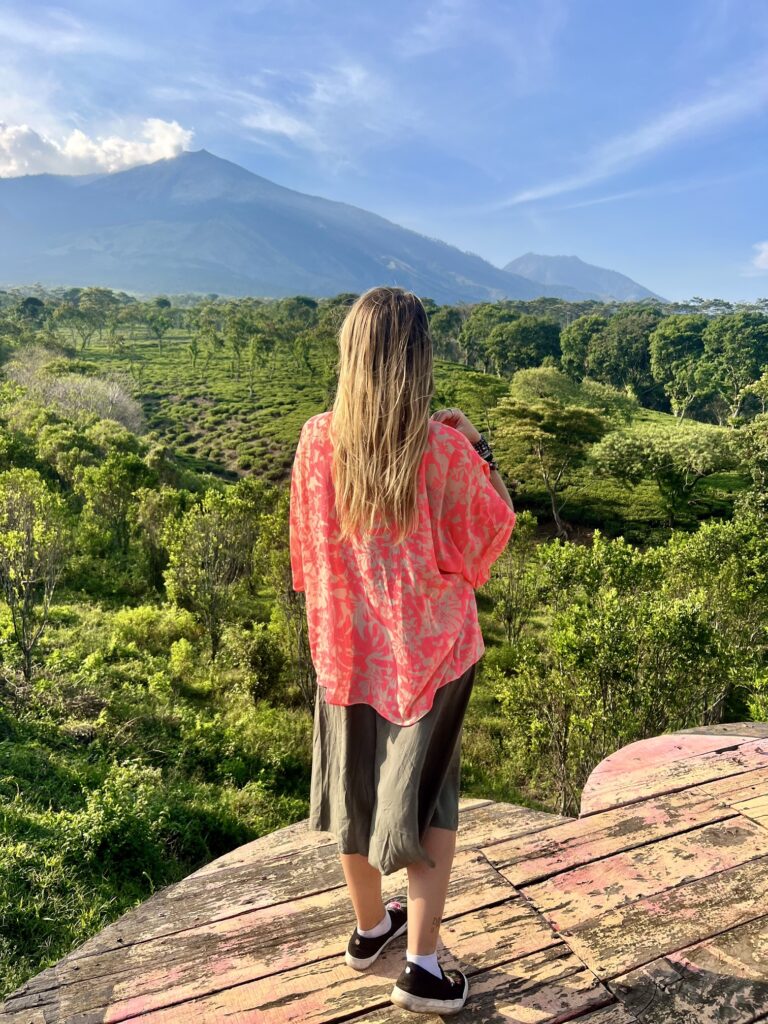
History of Tea in Malang- Key Highlights
- Explore lush tea plantations with stunning mountain views while learning about the history of tea in Malang.
- Learn about the history of tea cultivation in Malang, dating back to the early 1900s.
- Discover the unique varieties of tea grown in the region, influenced by its volcanic soil and ideal climate.
- Enjoy a range of activities, from tea tasting to plantation tours.
- Immerse yourself in the local culture and witness the significance of tea in Javanese traditions.
- Capture breathtaking photos and create unforgettable memories amidst the natural beauty.
Introduction
Malang City, or Kota Malang, is a charming place in East Java, Indonesia, and serves as part of Malang, the main city of the region. It is surrounded by beautiful landscapes and fresh mountain air. Malang has a lively culture and delightful tea plantations. Located in Southeast Asia, this city offers a mix of natural beauty and a rich history. You will find a thriving tea industry here as well. Continue below to learn about the history of tea in Malang and about the different tea plantations you can visit during your stay.
Discovering Malang’s Tea Plantations
Malang’s tea plantations are more than just farms. They are peaceful spots where you can see the history of the area and the skill involved in growing tea, reminiscent of the tea culture in Yogyakarta. Picture walking through lush, green fields with the fresh scent of tea leaves in the air and the sweet sound of birds singing.
These plantations are usually located on hills and offer stunning views of the nearby mountains and valleys, with some covering expansive areas of hectares. If you love tea or just want a relaxing getaway, you will have an amazing time at Malang’s tea plantations.
The Unique Climate of Malang for Tea Cultivation
One reason why Malang’s tea plantations do well is its special climate. Malang is located at an altitude of about 900 to 1,600 meters above sea level. It has a mild climate with average temperatures between 19 and 23 degrees Celsius. This cool and humid climate is just right for tea plants to grow. The soil in Malang is volcanic and has been built up over many years. This soil gives the tea its unique flavor and aroma. Because of these factors, Malang offers a great place for growing tea, making it a paradise for tea lovers.
Varieties of Tea Grown in Malang
In Southeast Asia, the Malang area is famous for its many types of tea. Each type has its own unique flavor. Here are some popular varieties found in Malang:
- Black Tea: This tea is strong and bold, with a dark color.
- Green Tea: It has a fresh, light taste and a soft green color.
- Oolong Tea: This is a semi-oxidized tea. It can taste different, ranging from floral to fruity.
These teas show the variety in Malang’s land, and they are high-quality teas enjoyed by people all over the world.
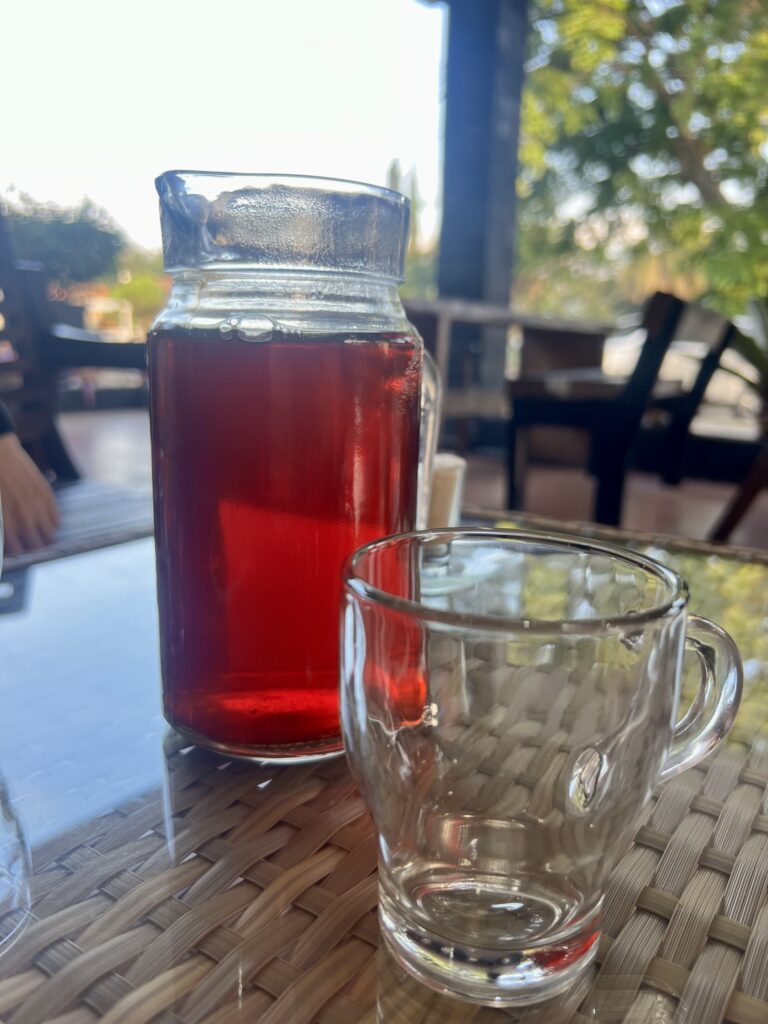
A Brief History of Tea in Malang
The history of tea in Malang connects closely to its colonial past. In the early 1900s, under Dutch rule, tea farms started to appear in the rich lands around Malang. The Dutch saw the farming potential of this area and created large tea estates. This changed the economy and identity of the region. Over the years, the tea industry in Malang grew a lot. Now, it leaves behind a legacy of big tea plantations that still create some of the best teas in Indonesia.
Early Beginnings and Local Legends
In the early 1900s, the green lands of Jawa Timur, now called East Java, began growing tea. The Dutch came in with their farming skills from China. They saw that the soil here was perfect for tea plants.
Local stories talk about old tea trees hidden in the forests. It’s said these trees have special, magical qualities. The true origin of these stories is not clear. Still, they add a bit of charm to the tea history of Malang. As tea farms settled in, they made big changes in the area. This turned it into a key place for tea production.
Colonial Impact on Tea Production
The Dutch colonizers greatly influenced the tea industry in Malang. They brought in better ways to grow tea and built factories to process it. They also made many roads and railways to help send tea to ports for export. These changes increased tea production a lot and made Malang an important part of the global tea trade. However, we should remember that this time also involved the unfair treatment of local workers and resources. Even with the problems of the colonial era, the impact of Dutch colonizers on tea production in Malang is clear.
Modern-Day Tea Industry in Malang
Today, the tea industry in Malang is doing well. It combines both old traditions and new ideas. Some tea farms still look like they did in colonial times. Others are using modern farming methods to be more sustainable and productive.
The Malang Regency has both big tea estates and small family-run farms. They all help the economy grow. These farms create jobs for local people and help keep the tea-making traditions alive in Malang. Also, the industry is now into tea tourism. This gives visitors a chance to see the beautiful plantations. They can learn how tea is made and taste the fresh flavors of Malang tea.
Exploring the Tea Plantation Regions
Malang has many beautiful tea plantations. Each one shows a different view of how tea is grown and the lovely nature around it.
Let’s explore some of the most interesting places:
Wonosari Tea Plantation – A Historical Overview
Step back in time at the Wonosari Tea Plantation in Surabaya. It is one of the oldest and most famous tea estates in Malang. It started in 1910. Wonosari feels like a living museum. You will see its historical buildings, large tea fields, and a factory where they make tea in a traditional way.
You can explore the plantation on foot in your jeep. Breathe in the clean mountain air and take beautiful photos of the landscapes around you, including a visit to Jodipan Rainbow Village. Make sure you enjoy a tea tasting session. Here, you can taste the special flavors of Wonosari tea.
Coban Rondo Plantation – Combining Nature and Tea Cultivation
For a special mix of nature, tea farming, and picturesque landscapes featuring a volcano, visit the Batu Coban Rondo Plantation near Borobudur. It is close to the beautiful Coban Rondo Waterfall, known for its labyrinth. Here, you can enjoy stunning views of the flowing water and green plants.
Take a nice hike through the tea fields. You can relax in nature and cool off with a swim in the waterfall’s pool. Coban Rondo is the perfect place for anyone looking for a fun tea plantation experience.
The Lesser-Known Plantations Worth Visiting
Malang has more to offer than just popular tourist attractions. It is filled with little-known tea plantations that give a unique experience. You can explore the countryside and find treasures like the Pandansari Tea Plantation, famous for its organic tea. You can also see the beautiful tea fields in the Gunung Kawi area. These plantations show the real tea culture of Malang, far from the busy places.
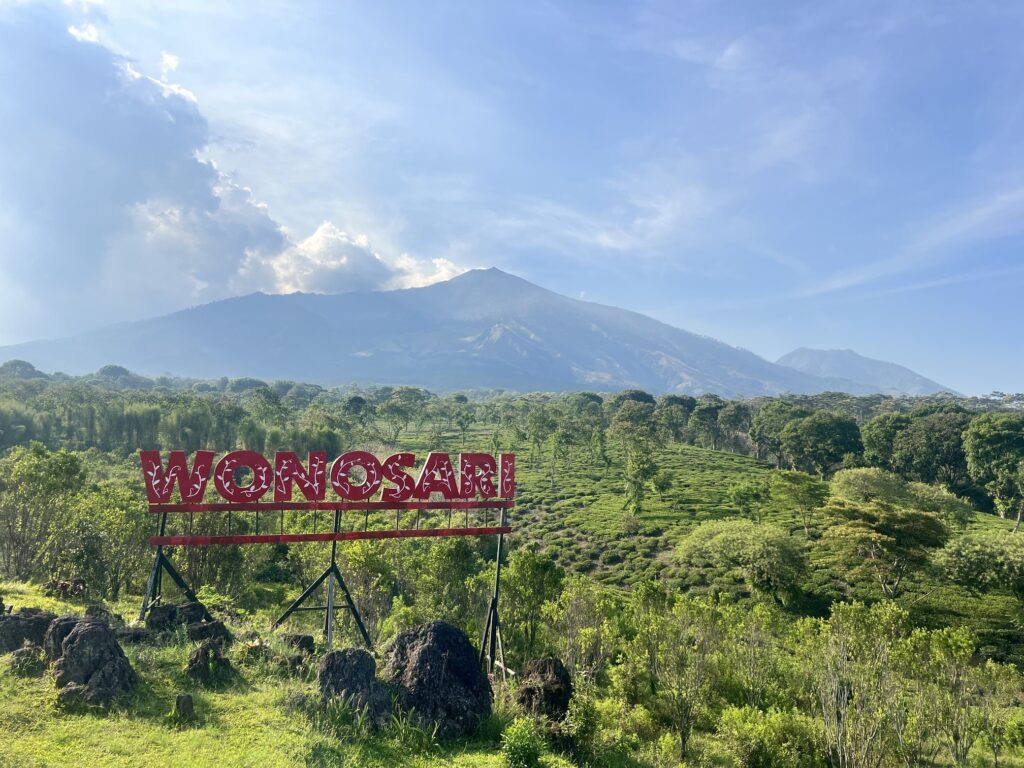
A Guide to Visiting Malang’s Tea Plantations
Planning a trip to the tea plantations in Malang? Here is a guide to help you enjoy your visit.
Best Time to Visit for an Optimal Experience
The best time to visit the tea plantations in Malang is in the dry season. This period usually goes from April to October. During these months, you will find sunny skies and good temperatures. It’s the perfect time to explore the plantations, with tours often priced around 712,500 IDR for group visits.
September is especially nice. The weather is pleasant, and the greenery is beautiful. The rainy season lasts from November to March. This time can bring heavy rain. It may make it harder to enjoy outdoor activities at the plantations. Still, if you don’t mind some rain, the wet season has its charm. After a rainfall, the tea bushes can look more vibrant.
Activities and Tours Available for Visitors
Malang’s tea plantations have many activities and tours to make your visit better. You can go on a guided tour to see how tea is made, from leaf to cup. Join a tea-tasting session to try different teas and find out which ones you like the best. For a fun experience, you can pick tea leaves from local farmers. Many plantations also let you stay overnight. This way, you can enjoy the peaceful tea fields and wake up to beautiful views.
Tips for a Memorable Tea Plantation Visit
To enjoy your visit to a tea plantation, here are some useful tips:
- Wear comfortable shoes: You will walk a lot, so make sure your shoes are comfy.
- Bring your camera: The beautiful landscape and cultural experiences have many photo spots.
- Respect the local culture: Dress appropriately and pay attention to local customs.
- Try the local tea: Be sure to taste the unique tea blends from the area.
The Process of Tea Making in Malang
The journey of making tea in Malang is truly interesting. It starts from the time the tea leaves are picked and goes all the way to the final cup. This process shows the skill and hard work of the local tea makers.
From Picking to Processing – An Insider’s Look
Tea processing in Malang uses both old and new techniques. It starts with selecting the best tea leaves. Then, the leaves go through several steps: withering, rolling, oxidation for some types, drying, and sorting. Each step affects the tea’s flavor, smell, and look. Some farms still use traditional ways, like hand-rolling the tea leaves. This creates special and valuable teas.
The Role of Local Communities in Tea Production
Local communities are very important in Malang’s tea production. Many families, like tea pluckers and factory workers, have depended on the tea industry for a long time. Lots of tea plantations focus on fair trade and community growth. They work to make sure their workers are happy and that the tea industry can last for years. This strong bond between the local people and the tea plants helps make Malang tea special and full of cultural meaning.
Innovations in Tea Processing and Packaging
In recent years, the tea industry in Malang has seen many new ideas, especially in how tea is processed and packaged such as incorporating technology.
Tea plantations are using more sustainable methods. They are using solar energy to dry tea leaves and using eco-friendly packaging. These changes help to lower the environmental impact while keeping the high quality of Malang tea. Also, many people are trying out new tea blends and infusions. They are adding local herbs and spices to create unique flavors that match what consumers want now.
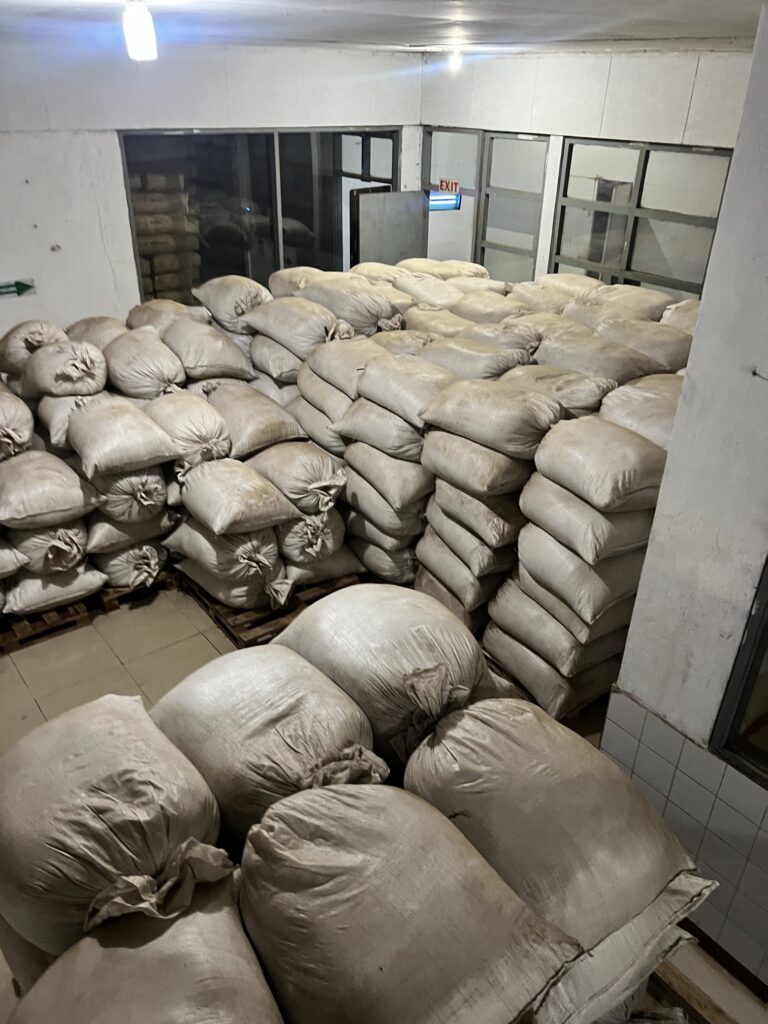
Cultural Significance of Tea in Malang
Tea in Malang is more than just a drink. It is a key part of the local culture. It plays a big role in traditions, ceremonies, and everyday life.
Tea in Local Traditions and Ceremonies
In Javanese culture, tea is very important in traditional ceremonies and rituals. It is usually served to guests to show hospitality and respect. At weddings, tea ceremonies represent the joining of two families. In spiritual events, tea offerings are given to honor ancestors and ask for blessings. Making and serving tea is viewed as an art. People use beautiful tea sets and graceful movements learned from past generations.
The Communal Aspect of Tea Consumption
Tea drinking in Malang goes beyond just special events. It brings people together and builds friendships. From small shops to homes, friends and family sit down to enjoy tea, talk, and grow closer. Whether it’s a simple meetup or a family get-together, tea helps create bonds and shared memories. Usually when people visit friends or families, a cup of tea is always offered. This tradition shows the friendly welcome and tight community in Javanese life.
Health Benefits of Malang Tea
Malang tea is special because it mixes natural ingredients and uses old ways to make it. This tea provides many health benefits.
Nutritional Properties of Malang Tea Varieties
Malang tea is full of antioxidants. These antioxidants help protect the body from damage caused by free radicals. They also lower the risk of long-term illnesses. Green tea is especially known for having many polyphenols. Polyphenols are strong antioxidants that can help your heart and cut the risk of some cancers. Black tea has its own antioxidants called theaflavins and thearubigins. These antioxidants may help you think better and aid in digestion.
Incorporating Malang Tea Into Your Wellness Routine
Incorporating Malang tea into your life can be a tasty and helpful way to feel better. You can start your day with a good cup of strong black tea. In the afternoon, try a calming cup of green tea. Explore various tea blends that include local herbs and spices for more taste and health benefits.
Always talk to your healthcare provider before you change your diet or wellness routine.
Sustainable Practices in Tea Cultivation
As more people learn about environmental issues, tea farms in Malang are using sustainable methods. They aim to reduce their impact on the environment.
Environmental Conservation Efforts by Plantations
Many plantations in Malang have started eco-friendly practices. They are using better irrigation systems to save water. They are also opting for organic fertilizers and pesticides. This helps keep the soil and water clean. Additionally, they are planting native trees and building wildlife corridors to support biodiversity.
These actions are good for protecting the natural environment in Malang. They also help make the tea industry more sustainable in the long run.
The Future of Sustainable Tea Farming in Malang
The future of tea farming in Malang depends on using sustainable farming methods. Tea plantations are looking at new ideas. They are using drone technology for better farming, setting up systems to collect rainwater, and putting money into research to create tea plants that can handle climate changes. By focusing on sustainability, Malang’s tea industry can protect its natural resources, help local communities, and keep making great tea for many years ahead.
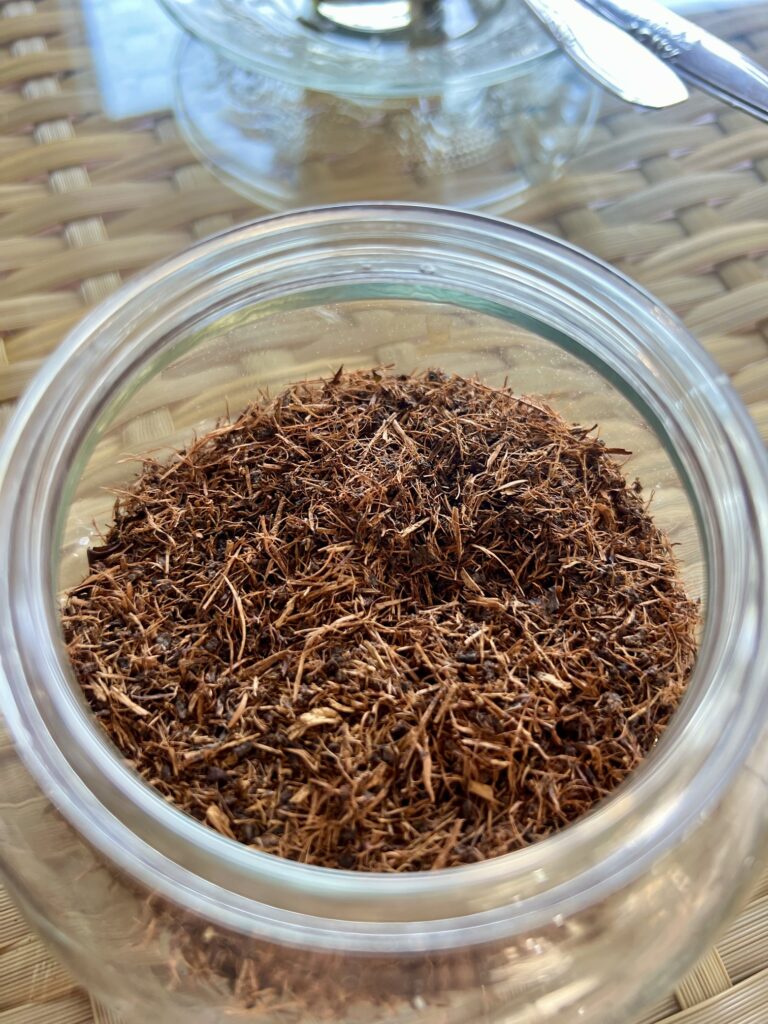
Where to Buy Malang Tea
Are you interested in bringing the tastes of Malang to your home?
Local Markets vs. Plantation Purchases
You have many ways to buy Malang tea, and each has its own special appeal. For a true shopping experience, visit the local markets. There, you can look at many vibrant tea stalls and talk to the local sellers. These markets are great to find special tea mixes and help the local economy. You can also get tea straight from the plantations. This way, you get fresh tea and support the farmers at the same time.
Online Platforms for Malang Tea Enthusiasts
Several online shopping sites focus on Indonesian tea, including many great options from Malang.
These sites give you clear details about different types of tea, where they come from, and how they are made. This way, you can choose wisely. Thanks to e-commerce, you can enjoy Malang tea’s unique flavors no matter where you are in the world.
Tea Tourism in Malang
Malang’s tea plantations are becoming more popular with travelers. People are looking for special and engaging experiences.
Integrating Tea Plantation Visits into Malang’s Tourism
Many tour operators provide special tea plantation tours. You can also add a tea plantation visit to your current travel plans. Take a trip to a tea plantation along with seeing other famous places in Malang, like Mount Bromo, for a complete experience. Whether you like history, culture, nature, or just want to relax in a peaceful area, visits to tea plantations bring something special to your adventure in Malang.
Educational Aspects of Tea Tourism
Tea tourism in Malang gives you more than pretty views. It teaches you about culture and helps you understand sustainable farming. When you visit tea farms, you can discover the history of tea growing, how tea is made, and why it’s important to support local people and eco-friendly methods. This type of farm tourism helps travelers and also keeps cultural traditions alive while promoting the growth of the tea industry sustainably.
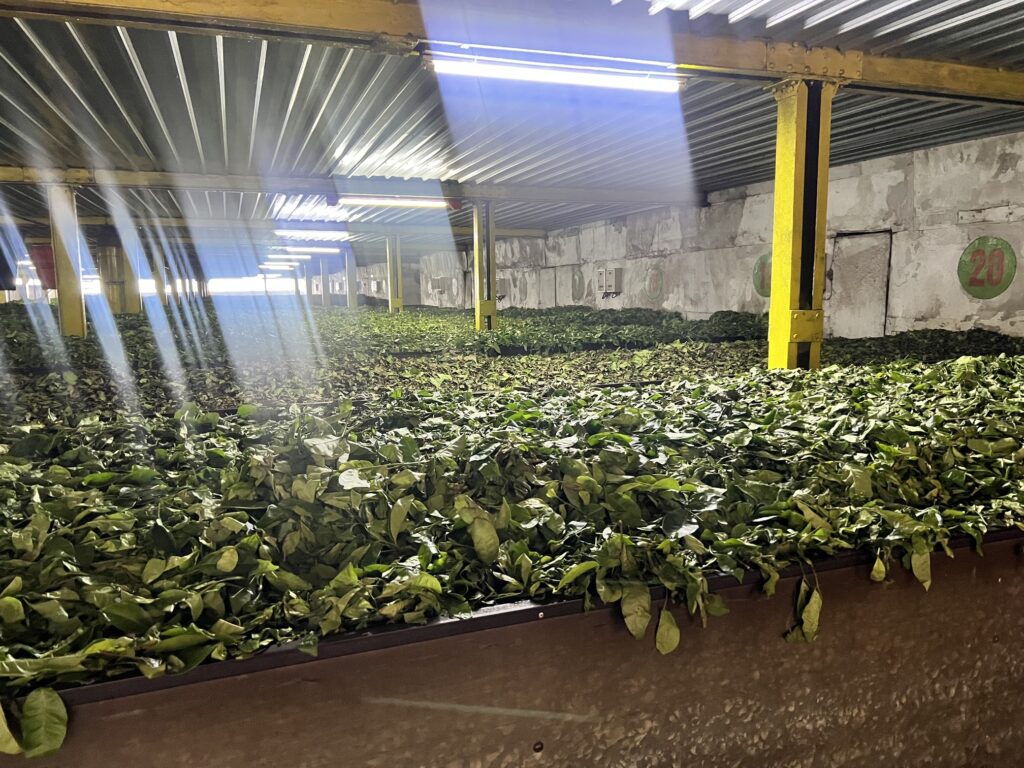
Conclusion
Immersing yourself in the green sights of Malang’s tea farms is a unique experience. It mixes nature, history, and culture. The special climate here grows different tea flavors. Local legends also tell stories about the tea industry. Each sip of tea has a story to tell. As you walk through, you can see old influences and new ideas in tea making. Make sure to see how tea is made for yourself. This trip is more than just about tea; it is also about culture. Plan your visit and enjoy the calm. Let the lovely smells of Malang’s tea farms draw you in. There is an adventure waiting in every cup.
Planning a visit to Indonesia? Check out my complete travel guide!
Frequently Asked Questions
What is the Best Season to Visit Tea Plantations in Malang?
Malang has a dry season from April to October. This time is great for visiting tea plantations. September is a special month with nice weather and beautiful green views.
Can Visitors Participate in the Tea Harvesting Process?
Yes, many tea plantations allow visitors to help with tea harvesting. This is a fun way to get real experience and learn about local practices.
Are There Any Accommodations Within the Tea Plantations?
Many plantations provide special places to stay. For example, Kebun Teh Wonosari has accommodations available for families and guests who are looking for a getaway from the city and a relaxing time with tea.
What are Some Must-Try Local Tea Blends?
- Try not to miss local favorites like Jasmine tea or tea mixed with tasty spices, such as ginger or lemongrass.
- Tea tasting sessions are a great way to enjoy these flavors.
How Can Tourists Contribute to Sustainable Tea Tourism in Malang?
Support plantations that use eco-friendly methods. Choose products made locally. Be aware of your impact on the environment. Responsible tourism can help create a better future for tea in Malang.
Does Kebun Teh Wonosari Produce Lipton Tea?
Kebun Teh Wonosari is a well-known tea plantation. It mainly focuses on its own brand and making its tea. Lipton Tea does have some production in Malang at Kebun Teh Wonosari. Ask the staff for more information during your visit.
Related Posts
Canadian Food to Try: 15 Must-Try Foods for Every Foodie
Canadian Food to Try- Key Highlights Let’s embark on a flavorful journey through Canadian cuisine! Introduction Canada’s…
Canadian Souvenirs: 10 Items to Showcase Your Trip
Canadian Souvenirs- Key Highlights Introduction Canada is more than just beautiful views and lively cities. It is…
Best Places to Visit in Canada: Top 10 for Travelers
Best Places to Visit in Canada- Key Highlights Introduction Canada is the second-largest country in the world….

